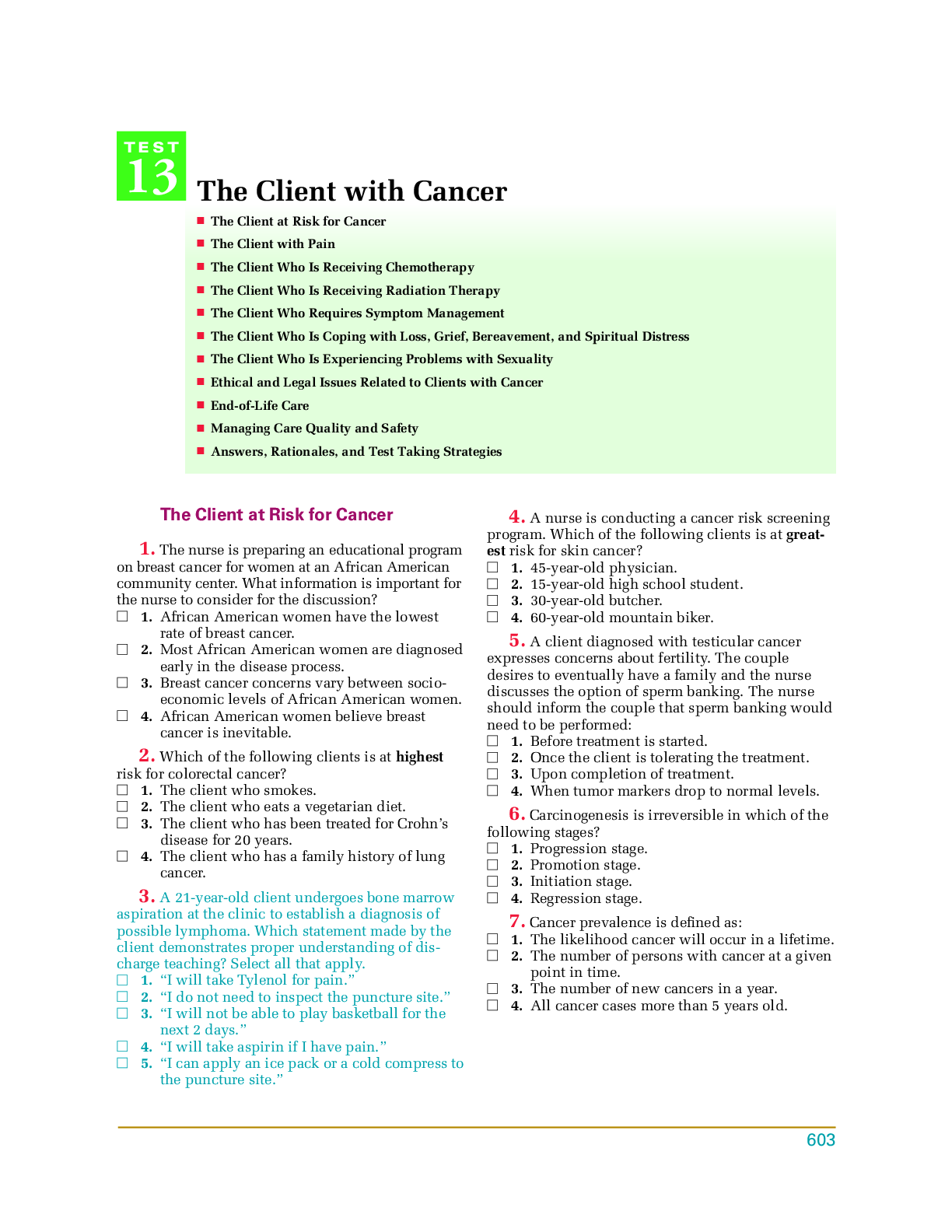The Client with Cancer (The Nursing Care of Adults with Medical and Surgical Health)
Course
Subject
Chemistry
Category
Questions Only
Pages
37
Uploaded By
ATIPROS
Preview 5 out of 37 Pages


Download all 37 pages for $ 7.00
Reviews (0)
$7.00
